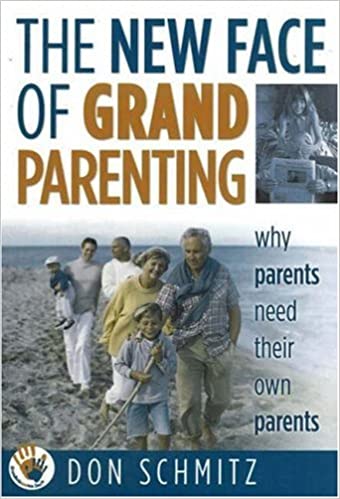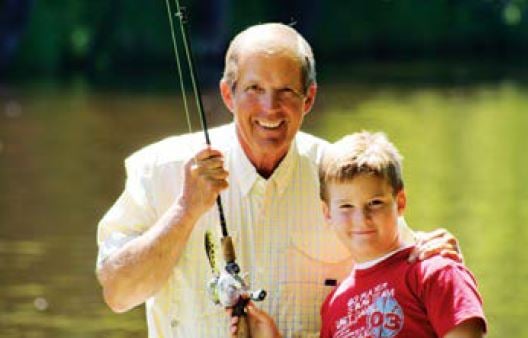Today’s kids are more likely to find Grandma in a yoga class than stirring cookie batter (and if she is doing the latter, the mixture just might contain soy milk and flax seed.) Today’s grandparents are often world travelers or active in even more clubs and organizations than their grandchildren. Despite the fact that the grandparenting lifestyle has changed somewhat over the years, their role in the lives of their grandchildren is perhaps even more valuable now than ever before.
In his book called The New Face of Grandparenting, St. Paul author Don Schmitz defines grandparents as those “who support the dreams of grandchildren.” They are individuals who have the capacity to nurture, advise, play, talk, listen, and interact with kids differently than the children’s parents can, especially in today’s fast-paced world. “Most of the time, parents want the grandparents to be involved in a child’s life,” says Schmitz. “However, it’s when the parents ask them to participate that many grandparents are the most enthusiastic.”
Thanks to technological innovations, even snowbird grandparents, who travel to warmer climates during the colder seasons of the year, can keep in touch via email-a means of communication that works especially well with teens and tweens. Schmitz -who has seven grandchildren, four of them step-grandchildren-has active long-distance relationships with three grandchildren who currently live in Sweden. Recently, his granddaughter, Hanna, celebrated her 11th birthday. ” I sent her an electronic card and also ordered her gift from Amazon.com in Europe,” says Schmitz. He regularly exchanges digital photos with Hanna and her siblings. “We always talk on the phone on Sunday-that’s our day to communicate,” Schmitz says.
The relationship between a teenager and a grandparent or another older adult is especially important, according to Schmitz. “Studies have shown the more adult mentors a child has in his or her life, the better off they are,” he explains. “A child’s grandfather might have entirely different skills to share than the child’s mother has. Grandparents or older adults also have the ability to share strong beliefs and strong values with young people.”
Since a teen’s peers are an integral part of their lives, Schmitz says he encourages grandparents to invite a grandchild’s friend along on outings. “It can really help break barriers because the extra child can help the grandchild reinforce the relationship with the grandparent,” he says. “The grandparent also has the opportunity to be more involved in the grandchild’s life by getting to know his friends.”
If a teen doesn’t have a grandparent in her life, Schmitz suggests parents try to encourage her to volunteer at a local senior residence. “It can be so beneficial to both the teen and the elderly residents,” he says, explaining that, sadly, there are many seniors living in nursing homes who can go for weeks without visitors. “Whenever a child or a young person is present, you can actually see their faces light up,” says Schmitz.
Schmitz has created a nonprofit foundation called Grandkidsandme that sponsors a variety of activities throughout the year for children and their grandparents to enjoy together. The central vision of the foundation is “to rekindle the spirit of grandparenting within the family” and this is accomplished by offering fun ways for the grandparent and grandchild to connect, whether it’s paddling a canoe down the Mississippi, attending a play together or working on craft projects.
For the fifth year in a row, Grandkidsandme will be sponsoring its popular Grandparent Camp Weekend this month (See sidebar). “I really look at it as a one-room schoolhouse,” says Schmitz. “The older ones and the younger ones all have something to learn from one another. It’s such a great opportunity for them to spend quality time together.”
Minnesota Parent may earn a small commission for our endorsement, recommendation, testimonial, and/or affiliate link to any products or services from this website.














